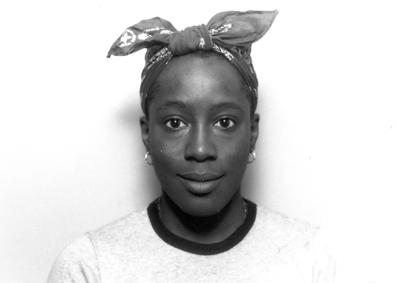“A road movie without the road, a love story without love, and a crime story without the crime”—thus is writer-director Reichardt's own description of her sublime, semi-autobiographical feature film debut. Taking a page from Terrence Malick's Badlands (1973), River of Grass employs the ennui-ridden housewife Cozy (Lisa Bowman) as its increasingly unreliable narrator as she and degenerate barfly Lee Ray (Larry Fessenden, who also produced and cut the film) embrace the misadventures that could only befall amateur, wanderlust criminals as they bumble and fumble back and forth across the sticky inertia of the Florida Everglades.
Sprinkled with a casual ‘90s nostalgia for the cool mid-‘50s, and with an indie spirit that barely survived to the next decade, the resulting kinetic energy of Grass was matched with enthusiastic praise. Alas, this did not lead to immediate opportunities for Reichardt, but instead a brick wall of funding difficulties and the reality of rampant, industry-wide sexism. Frustrated, she resorted to teaching film production, sidelining her feature filmmaking career for nearly 12 years in the interim.
Reichardt's uniqueness of vision and voice has only seen substantial appreciation in the last decade, as she has firmly cemented herself as an artist concerned with the poetry of place—a theme that would continue with Old Joy (2006), Meek's Cutoff (2010) and her recent minimalist masterpiece, Certain Women (2016).
For a time commercially unavailable, River of Grass was given new life thanks to a successful crowd-funding campaign by distributor Oscilloscope, in tandem with a preservation partnership between the Sundance Collection at UCLA and the Toronto International Film Festival, which oversaw the digital restoration and 2K scan of timeworn film elements. Following the new restoration's brief repertory run in Los Angeles and New York City in early 2016, the Archive is proud to present this under-seen gem for audiences hungry to connect with the filmmaking roots of this fiercely American visionary. —KJ Relth
DCP, color, 76 min. Director: Kelly Reichardt. Production: Good Machine. Distribution: Oscilloscope. Producer: Larry Fessenden, Jesse Hartman, Susan A. Stover. Writer: Kelly Reichardt, Jesse Hartman. Cinematography: Jim Denault. Production Design: David Doernberg. Editor: Larry Fessenden. Music: John Hill. Cast: Lisa Bowman, Larry Fessenden, Dick Russell, Michael Buscemi.
Preserved from the 16mm original A/B negatives and 16mm original track negative. Laboratory services by Modern Videofilm, Fotokem. Sound services by Deluxe Media Audio Services.






 Mobile Navigation
Mobile Navigation

